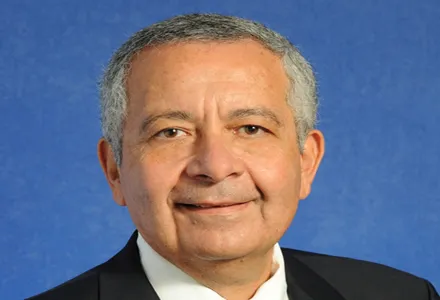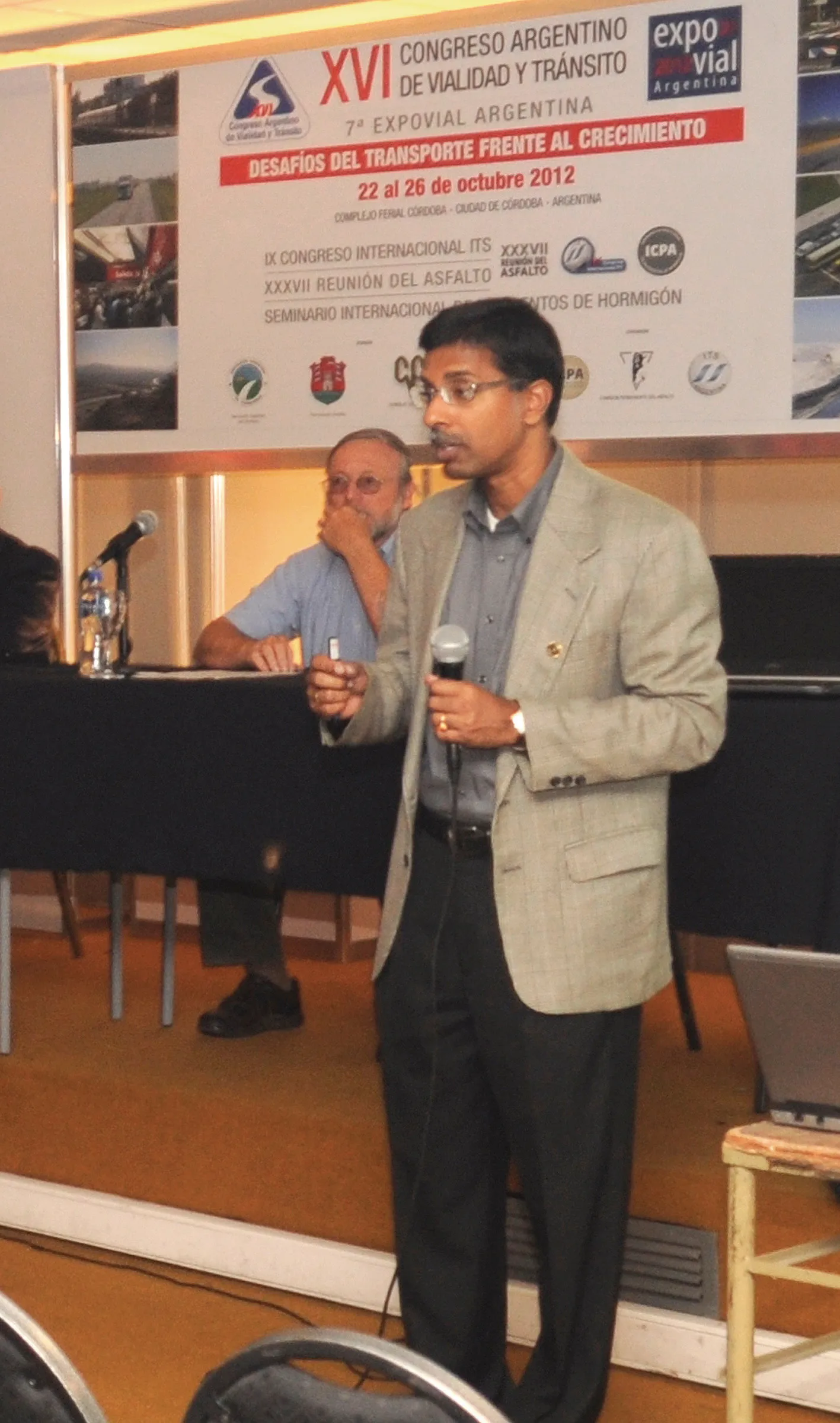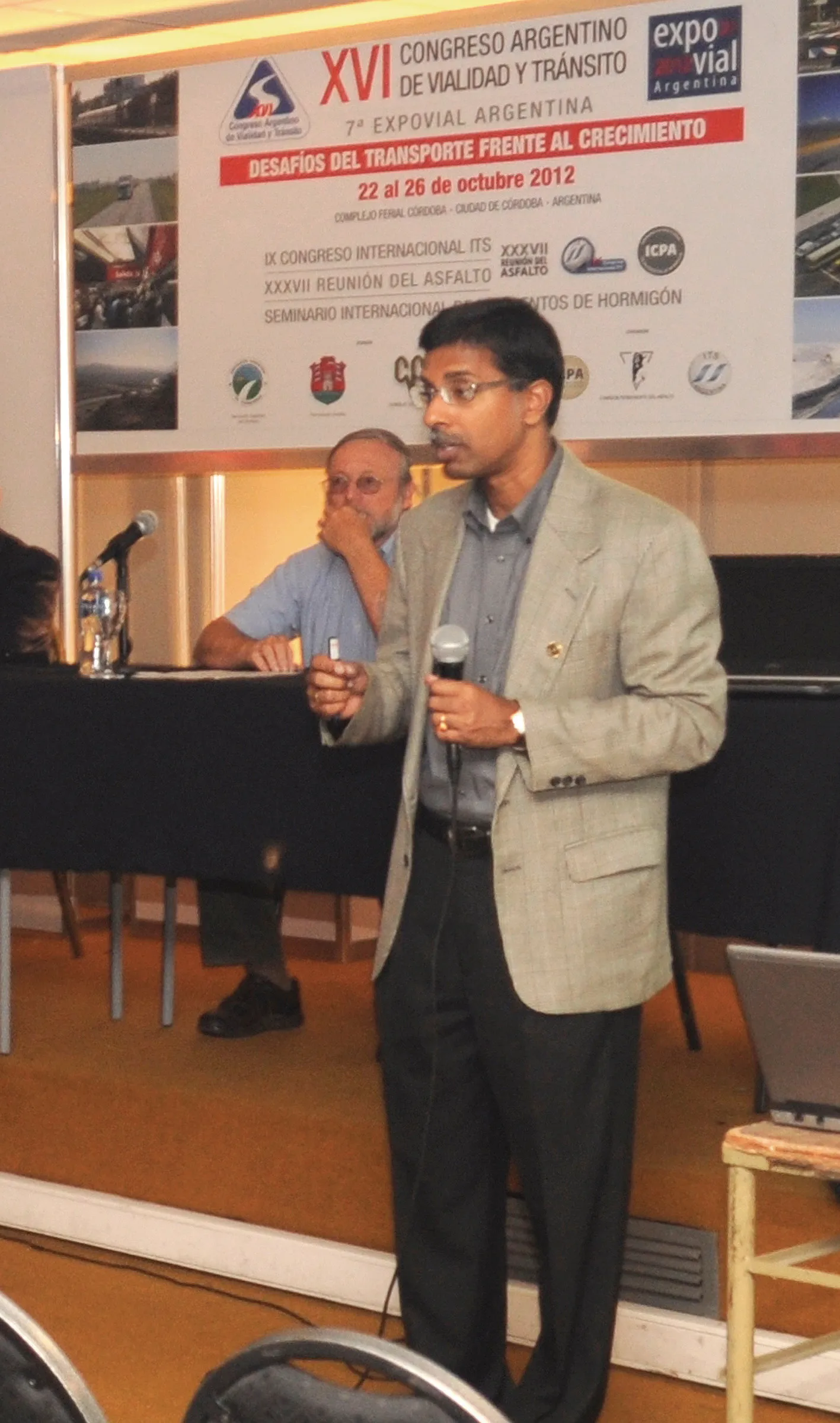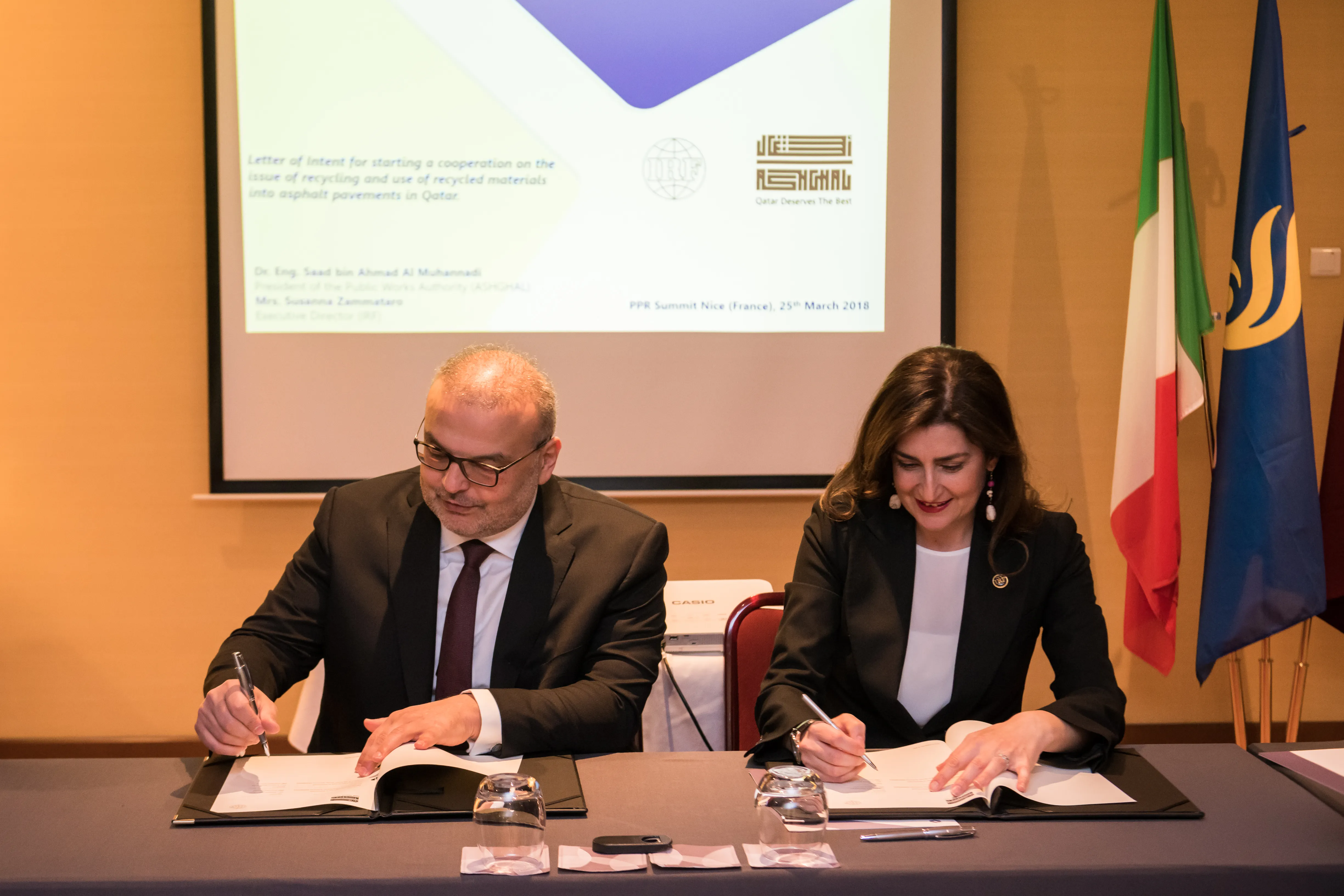IRF Geneva was one of the supporting partners of the second Iran ITS Congress held in Tehran on 7th – 8th February, 2017. The congress included several high-level speakers Abbas Ahmad Akhoundi, Iranian minister of Roads & Urban Development; Dawoud Keshavarzian, Iranian deputy minister of Roads & Urban Development & president of RMTO; Taghi Mehri, police chief, Traffic Police; Shahram Adamnejad, executive board member & deputy of planning, RMTO; and Nayereh Pirouzbakht, president, Iran National Standards Org
April 6, 2017
Read time: 3 mins
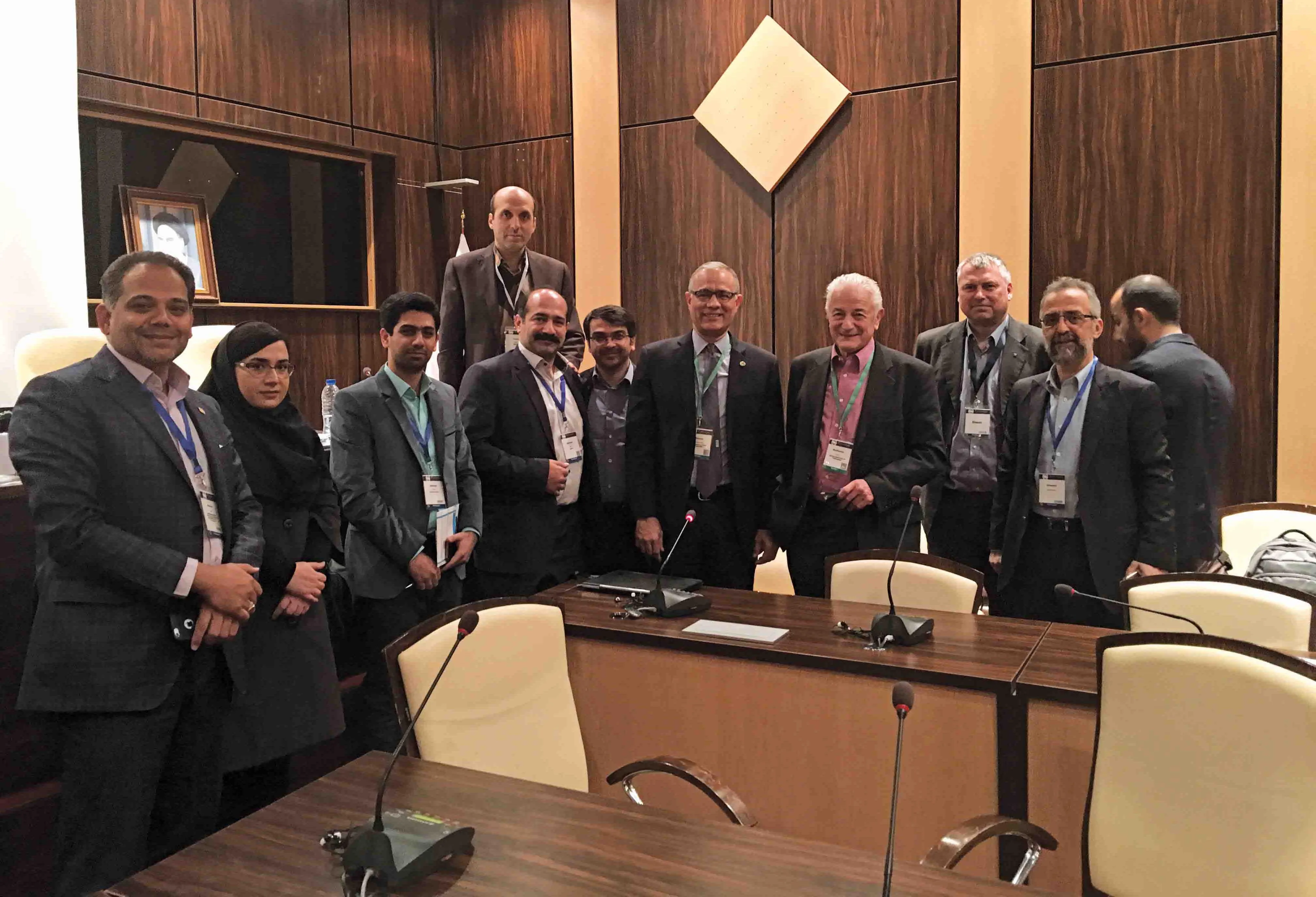
IRF Geneva partners with the second Iran ITS Congress to deliver new solutions
1201 IRF Geneva was one of the supporting partners of the second Iran ITS Congress held in Tehran on 7th – 8th February, 2017. The congress included several high-level speakers Abbas Ahmad Akhoundi, Iranian minister of Roads & Urban Development; Dawoud Keshavarzian, Iranian deputy minister of Roads & Urban Development & president of RMTO; Taghi Mehri, police chief, Traffic Police; Shahram Adamnejad, executive board member & deputy of planning, RMTO; and Nayereh Pirouzbakht, president, Iran National Standards Organisation. It also included several international speakers: Shigetoshi Tamoto, vice president, ITS Japan, Japan; Sylvain Haon, director of Knowledge and Membership Service, UITP, France; Dr Hermann Knofiacher, professor of the Institute of Transportation, Research Centre of Transport Planning and Traffic Engineering, University of Technology Vienna (TU Wien), Austria; and Dr Adnan Rahman, director general IRF Geneva.
The topics covered by the Congress included:
• General policies, standards and Environment
• Intelligent management of traffic safety and control
• Transportation in smart city
• Technology and equipment
• Public transportation
• Data management and applications
• ITS projects, management and Experiences
• Social and cultural aspects Dr Adnan Rahman, IRF Geneva director general gave a presentation on “Big Data: Helping Solve the Urban Mobility Problem.” In his talk, Dr Rahman underlined the importance of data in managing urban mobility, transport and infrastructure, and pointed out that new technologies have made it easier and cheaper to collect and use big data. Two examples of recent initiatives were given in support of this, the example of Mobility as a Service (MaaS), and the Future Mobility Survey (FMS).
Maas, Dr Rahman said, is “made possible by big data,” while the FMS is a simple and inexpensive technology that allows the collection of large volumes of high-quality data. He concluded by stating that managing road networks requires moving beyond just managing road infrastructure and traffic to managing mobility
IRF Geneva, together with the Iranian Road Maintenance and Transportation Organisation (RMTO) also held a workshop on “Creating Conditions for Successful Deployment of ITS in Iran: An ITS Policy Manifesto.” The workshop was attended by more than 60 people, and chaired by Mr Ghorbani of the RMTO. During the workshop Dr Rahman, together with the participants, addressed the steps in the policy cycle in terms of what is needed to facilitate the deployment of ITS solutions and technologies.
The workshop’s conclusions were that proper planning is essential for successfully deploying ITS solutions, and that the non-technical aspects of an ITS project are extremely important to make it a success.
The topics covered by the Congress included:
• General policies, standards and Environment
• Intelligent management of traffic safety and control
• Transportation in smart city
• Technology and equipment
• Public transportation
• Data management and applications
• ITS projects, management and Experiences
• Social and cultural aspects Dr Adnan Rahman, IRF Geneva director general gave a presentation on “Big Data: Helping Solve the Urban Mobility Problem.” In his talk, Dr Rahman underlined the importance of data in managing urban mobility, transport and infrastructure, and pointed out that new technologies have made it easier and cheaper to collect and use big data. Two examples of recent initiatives were given in support of this, the example of Mobility as a Service (MaaS), and the Future Mobility Survey (FMS).
Maas, Dr Rahman said, is “made possible by big data,” while the FMS is a simple and inexpensive technology that allows the collection of large volumes of high-quality data. He concluded by stating that managing road networks requires moving beyond just managing road infrastructure and traffic to managing mobility
IRF Geneva, together with the Iranian Road Maintenance and Transportation Organisation (RMTO) also held a workshop on “Creating Conditions for Successful Deployment of ITS in Iran: An ITS Policy Manifesto.” The workshop was attended by more than 60 people, and chaired by Mr Ghorbani of the RMTO. During the workshop Dr Rahman, together with the participants, addressed the steps in the policy cycle in terms of what is needed to facilitate the deployment of ITS solutions and technologies.
The workshop’s conclusions were that proper planning is essential for successfully deploying ITS solutions, and that the non-technical aspects of an ITS project are extremely important to make it a success.


